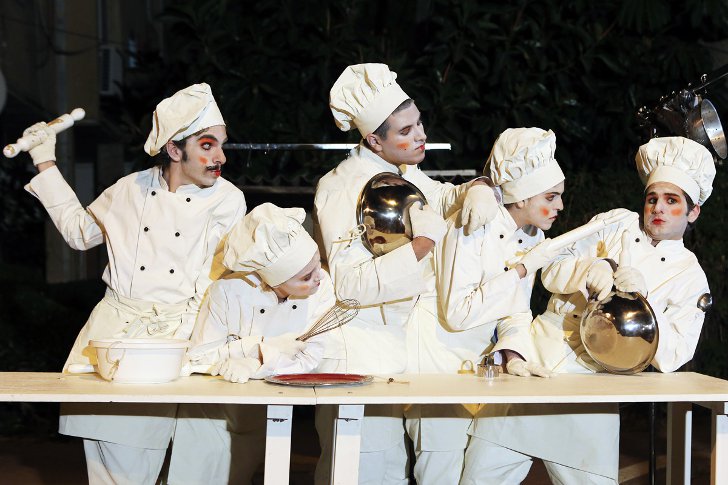The Acco Festival of Alternative Israeli Theater is modeled after the famous Edinburgh Festival Fringe that has paved the way for numerous fringe festivals held around the world. The inaugural Fringe Festival in Acre took place in 1980. Since 2000, the festival has been produced and managed by the Municipality of Acre. The event is supported by the Old Acre Development Company, the Ministry of Culture of Israel as well as by local and overseas philanthropic foundations.
The festival’s program includes local and foreign theater productions, a competition for new original plays that premier during the festival, open air and street theater performances, live concerts by music ensembles, lectures and masterclasses, arts and crafts workshops, and a plethora of other events. The Acco Festival of Alternative Israeli Theater focuses on non-mainstream, innovative and experimental productions, many of which combine various genres and techniques such as dance, video, clowning, pantomime, etc. Such productions can rarely be seen in the conventional theater.
The theater festival in Acre is special because its host city has an ancient history. This allows to stage vanguard contemporary productions in historic venues located within the Old City of Acre such as the Citadel of Acre. The contrast between the old and the new provides for an exciting theatrical experience.
The Acco Fringe Theater Festival has become a symbol of peaceful coexistence between the Arab and Jewish inhabitants of the city (Acre has a relatively high percentage of Arab population). The program features works by Arab playwrights and performances by Arab troupes and musicians. Besides, the festival hosts educational projects designed for local Jewish and Arab teens, including immigrant youth.
Despite the unstable situation in the Middle East, the Israel Fringe Theater Festival has never been canceled. However, the organizers had to postpone and scale it down twice: during the October 2000 events of the Second Intifada and during the Yom Kippur riots of 2008. Both times, the festival was held during the Hanukkah holiday week rather than during the Sukkot holiday week.

Photo by Mel Brickman




